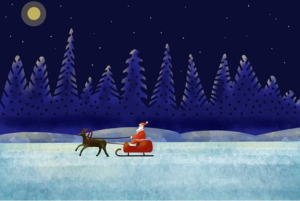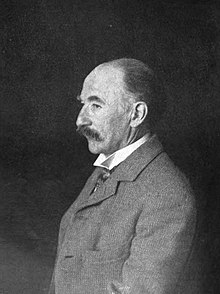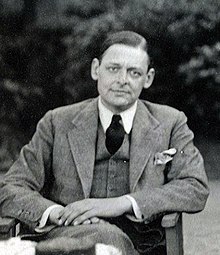
Your Christmas Gift: two poems to enjoy and share…
The Oxen
By Thomas Hardy
Christmas Eve, and twelve of the clock.
“Now they are all on their knees,”
An elder said as we sat in a flock
By the embers in hearthside ease.
We pictured the meek mild creatures where
They dwelt in their strawy pen,
Nor did it occur to one of us there
To doubt they were kneeling then.
So fair a fancy few would weave
In these years! Yet, I feel,
If someone said on Christmas Eve,
“Come; see the oxen kneel,
“In the lonely barton by yonder coomb
Our childhood used to know,”
I should go with him in the gloom,
Hoping it might be so.

Thomas Hardy
(1840-1928)
Hardy’s long career spanned the Victorian and the modern eras. He described himself as a poet “who holds that if way to the Better there be, it exacts a full look at the Worst” and during his nearly 88 years he lived through too many upheavals – including World War I – to have become optimistic with age. Nor did he seem by nature to be cheerful: much of the criticism around his work concerns its existentially bleak outlook, and, especially during Hardy’s own time, sexual themes. (Source: The Poetry Foundation)
The Journey of the Magi
By T.S. Eliot
A cold coming we had of it,
Just the worst time of the year
For a journey, and such a long journey:
The ways deep and the weather sharp,
The very dead of winter.’
And the camels galled, sorefooted, refractory,
Lying down in the melting snow.
There were times we regretted
The summer palaces on slopes, the terraces,
And the silken girls bringing sherbet.
Then the camel men cursing and grumbling
and running away, and wanting their liquor and women,
And the night-fires going out, and the lack of shelters,
And the cities hostile and the towns unfriendly
And the villages dirty and charging high prices:
A hard time we had of it.
At the end we preferred to travel all night,
Sleeping in snatches,
With the voices singing in our ears, saying
That this was all folly.
Then at dawn we came down to a temperate valley,
Wet, below the snow line, smelling of vegetation;
With a running stream and a water-mill beating the darkness,
And three trees on the low sky,
And an old white horse galloped away in the meadow.
Then we came to a tavern with vine-leaves over the lintel,
Six hands at an open door dicing for pieces of silver,
And feet kicking the empty wine-skins.
But there was no information, and so we continued
And arriving at evening, not a moment too soon
Finding the place; it was (you might say) satisfactory.
All this was a long time ago, I remember,
And I would do it again, but set down
This set down
This: were we led all that way for
Birth or Death? There was a Birth, certainly
We had evidence and no doubt. I had seen birth and death,
But had thought they were different; this Birth was
Hard and bitter agony for us, like Death, our death.
We returned to our places, these Kingdoms,
But no longer at ease here, in the old dispensation,
With an alien people clutching their gods.
I should be glad of another death.

T.S. Eliot
(1888-1965)
T.S. Eliot, the 1948 winner of the Nobel Prize in Literature, is one of the giants of modern literature, highly distinguished as a poet, literary critic, dramatist, and editor and publisher. In 1910 and 1911, while still a college student, he wrote four poems – “Portrait of a Lady,” “Preludes,” “Rhapsody on a Windy Night,” and “The Love Song of J. Alfred Prufrock” – that introduce themes to which, with variation and development, Eliot returned time and again. One of the most significant is the problem of isolation, with attention to its causes and consequences in the contemporary world. (Source: The Poetry Foundation)
 MarkFord
MarkFord